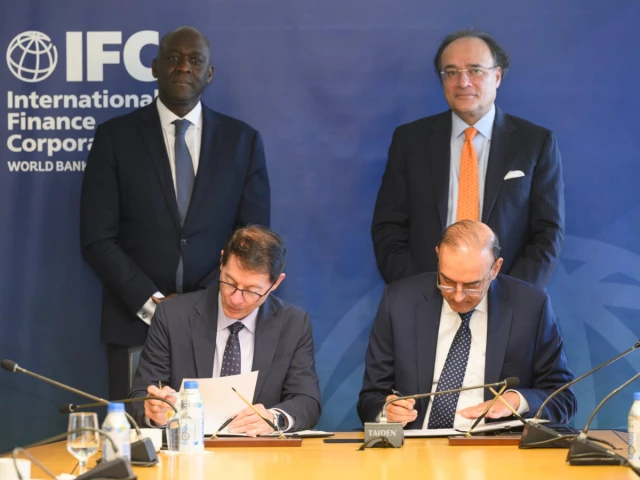SBP, IFC sign deal to boost private sector growth in Pakistan
Collaboration to unlock financing for critical sectors and create jobs nationwide

The State Bank of Pakistan has partnered with the International Finance Corporation (IFC), the private sector arm of the World Bank Group, to expand local currency financing and support private sector growth in Pakistan.
The agreement, signed under the International Swaps and Derivatives Association (ISDA) framework, will enable the International Finance Corporation (IFC) to manage currency risks more effectively and increase its investments in Pakistani rupees, according to a State Bank of Pakistan (SBP) press release (SBP).
2/2 #SBP has partnered with the International Finance Corporation to expand local currency financing and support private sector growth in Pakistan. This will enhance financing opportunities for the private sector & create jobs across the country. pic.twitter.com/KdnWUBJDDf
— SBP (@StateBank_Pak) October 20, 2025
SBP Governor Jameel Ahmad said, “Promoting private sector growth in Pakistan is paramount to the successful, sustainable economic development of the country. The partnership with IFC aims to enhance financing opportunities for the private sector” (SBP). He added that the collaboration would help unlock financing for critical sectors and create jobs across the country.
Read: FinMin ends Washington visit after key ADCB, IMF–World Bank talks
John Gandolfo, IFC Vice President and Treasurer, Treasury & Mobilisation, said, “With currency volatility posing significant risks to developing economies, access to local currency financing has never been more important. Promoting this type of financing is a strategic priority for the World Bank Group and a catalyst for economic growth in Pakistan” (SBP).
The SBP noted that exchange rate risks challenge companies that borrow in hard currencies such as the US dollar while earning revenue in local currencies. Addressing this mismatch is essential to strengthen local businesses’ financial resilience and support broader economic stability (SBP).
Through the partnership, the SBP aims to bolster economic resilience, improve foreign exchange liquidity, and promote private sector development.
The development came as Pakistan sought to stabilise its macroeconomic indicators amid IMF discussions over its lending programme and a potential $1.2 billion payout. The government also aimed to attract private sector investment and expand infrastructure financing, priorities highlighted during Finance Minister Muhammad Aurangzeb’s six-day official visit to Washington, DC, for the IMF–World Bank Annual Meetings.
During the visit, Aurangzeb met senior officials of the IFC and Islamic Development Bank (IsDB), stressing the importance of strengthening private sector partnerships and investment under the World Bank Group’s frameworks.
Read More: WB pledges record $40 billion for Pakistan reforms
These engagements were part of broader reform and stabilisation efforts, including IMF programme reviews and measures to enhance Pakistan’s economic resilience and foreign exchange liquidity.
The SBP–IFC partnership aligns with these efforts, supporting private sector development, mitigating currency risk, and enabling financing for critical sectors.
The State Bank of Pakistan is the country’s central bank, responsible for price stability, financial system stability, and supporting development and utilisation of Pakistan’s productive resources (SBP).
On the other hand, IFC is the largest global development institution focused on the private sector in emerging markets. Operating in over 100 countries, it leverages capital, expertise, and partnerships to create opportunities in developing countries and promote sustainable growth (SBP).



















COMMENTS
Comments are moderated and generally will be posted if they are on-topic and not abusive.
For more information, please see our Comments FAQ